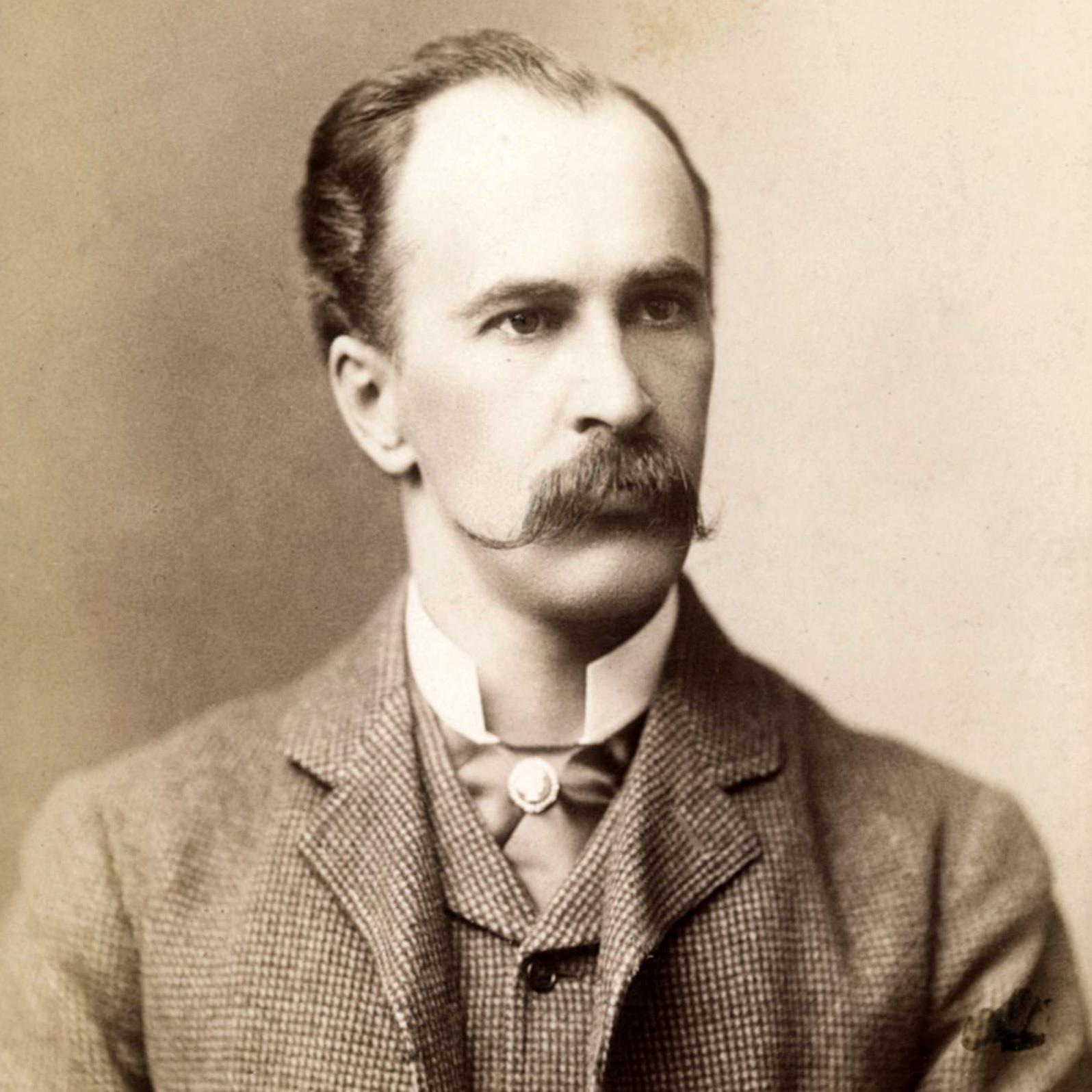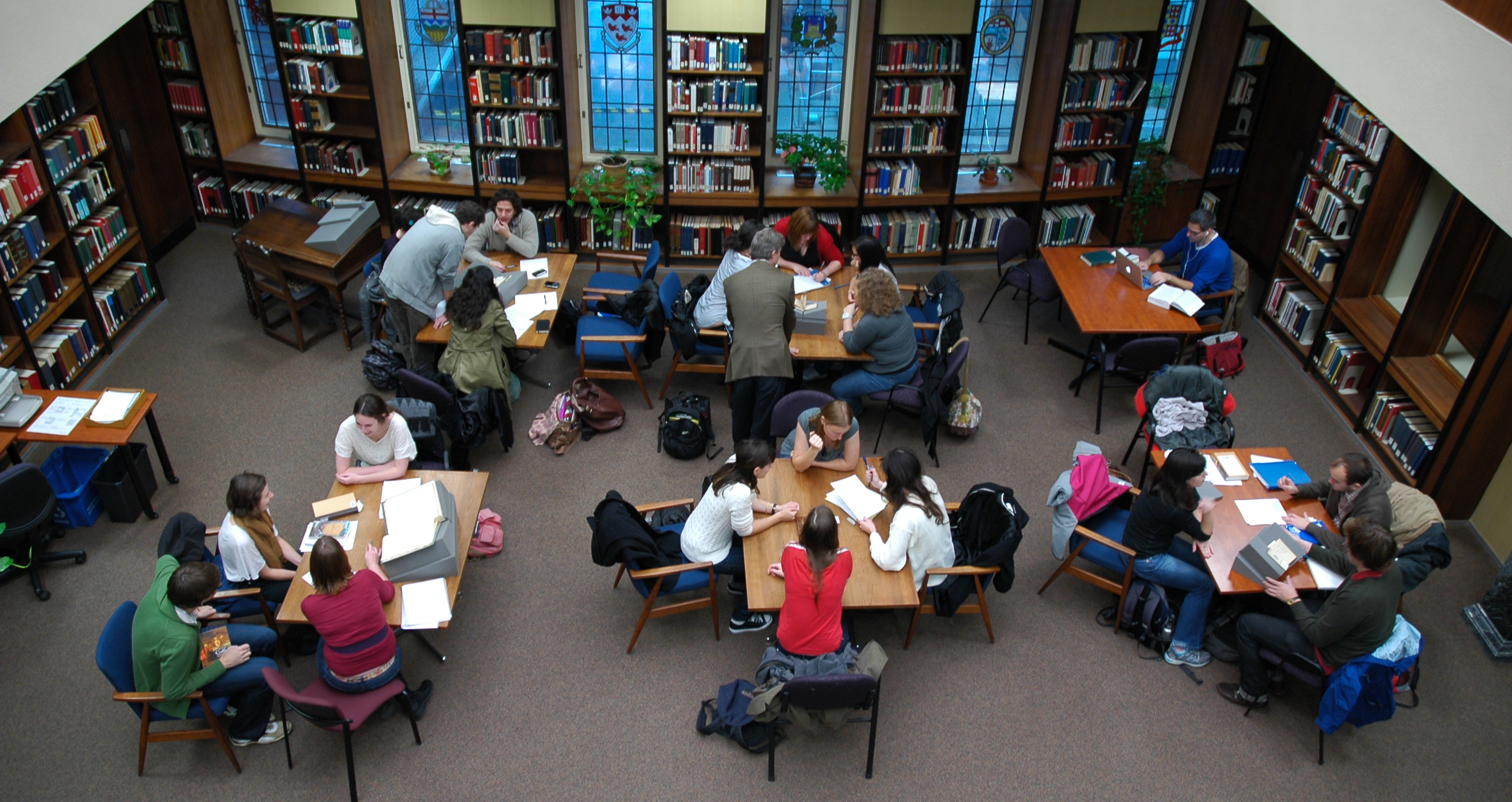Sir William Osler was a true medical pioneer. Over the course of his distinguished career as a physician, professor, author, and bibliophile at McGill, the University of Pennsylvania, and Johns Hopkins, and as Regius Professor of Medicine at Oxford University, he developed new methods of using the microscope and conducting pathological studies and introduced a radical new method for teaching medical students – at the patient’s bedside. He also authored The Principles and Practice of Medicine, the most widely used textbook for medical students in the early decades of the 20th century. Knighted for his significant innovations in teaching and contributions to medicine, Sir William Osler was revered for his warm personality and for his blending of humanity and science.
Throughout Dr. Osler’s active and productive life, books were one of his consuming passions, especially – but by no means exclusively – books relating to the history of medicine. He avidly collected the most important editions of the most significant medical books and manuscripts of the ages, as well as the best modern texts on the history of medicine.
Upon his death in 1919, Osler bequeathed the bulk of this priceless collection to McGill, in gratitude for the sound education and support he received early in his career. In a letter, he stated that this decision was based upon: “strong ties of head and heart. As a young, untried man, McGill College offered me an opportunity to teach and to work; but what is more, members of the Medical faculty adopted me, bore with vagaries, and often gave practical expressions of sympathy with schemes which were costly and of doubtful utility. They believed in me and helped me to believe in myself, an important asset for a young man, but better had by nurture than by nature. Alma Mater, too, counts for much, and as a graduate of McGill I am proud of her record.”
Building on Dr. Osler’s generous bequest, the Library’s collection has grown to comprise some 100,000 items, including rare and historic materials, archives, current books and periodicals, manuscripts, artefacts and photographs that cover the entire scope of historical medicine.
Among its diverse treasures are: Andres Vesalius’ great anatomical atlas De Humani Corpus Fabrica and Copernicus’ ground breaking work on the solar system De Revolutionibus Orbium Cœlestium, both from 1543. Other great books of early modern medicine and science include Galileo’s Dialogo from 1632, William Harvey’s De Motu Cordis (1628), which described the circulation system and Thomas Willis’ Cerebri Anatome (1664), with its wonderful brain illustrations by Christopher Wren.
The Osler Library is a thriving tribute to its founder. In addition to housing Dr. Osler’s stellar collection of medical texts, the Library preserves the bulk of his personal papers, as well as the archives of numerous individuals and institutions associated with Osler, McGill and medicine. There – at his request – Osler’s ashes rest among his beloved books.
The Osler Library is committed to fulfilling the dream of its founder – to provide the community with a world-class collection that explores the history of the health sciences. Ongoing digitization efforts are making its unique and rare holdings accessible to thousands of scholars, practitioners and students.
Important digital collections include the William Osler Photo Collection and the Osler Library Prints Collection. The former houses close to 400 images of Dr. Osler, his family and colleagues. The latter is an award-winning website that showcases a rich variety of visual documents related to the history of medicine from the 17th to the 20th century. Both are valuable resources for the history of medicine and art history.
The Osler Library’s unique holdings not only serve McGill’s researchers and students; they serve the world. Its reputation as a world-class centre for the study of medicine has been secured through the ongoing generosity of past and current friends, whose gifts have helped the library to undertake the above activities.
















Leave a Reply
You must be logged in to post a comment.